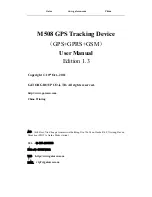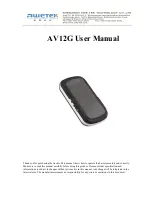
CAP 413
Radiotelephony Manual
Appendix 2 Page 1
Appendix 2 UK Civil/Military Radiotelephony Differences
1
For operational reasons there are a number of areas where UK military phraseology
differs from UK civil phraseology.
2
Chapter 10 of this Manual details Military Specific Phraseology for specific use by
military ATCOs and military aircrew. The RTF described in Chapter 10 is
complementary to NATO STANAG 3817. It is also complementary to the remainder of
CAP 413, as it either differs from civil phraseology or there is no equivalent civil
phraseology, e.g. in the case of arrestor system procedures.
3
Although the RTF described in Chapter 10 is designed for use by military ATCOs and
aircrew, civil pilots visiting military aerodromes will be expected to be aware of the
military phraseology shown in Chapter 10 and comply with such instructions as may
be issued by military controllers. Where relevant, cross references from the
remainder of CAP 413 to the equivalent military phraseology are provided for the
assistance of civil pilots visiting military aerodromes.
4
Significant differences between UK civil and UK military phraseology are described in
the table below
.
Details of Civil/Military Phraseology
Difference
Civil Phraseology
Reference
Military Phraseology
Reference
Transmission of Frequencies
Civil usage is to transmit all 6 figures of a
frequency, except where the final 2 digits are
zero, in which case only the first 4 digits need
be given.
For UHF channels military usage differs in that
only the first five digits are pronounced.
Chapter 2, page 4
paragraph 1.4.4
Chapter 10, page 1,
paragraph 2.1
Transmission of Time
Civil usage is that when transmitting time,
only the minutes of the hours are normally
required. However the hours should be
included if there is any possibility of
confusion.
When aircraft check the time with the
appropriate military ATSU, time checks shall
be given to the nearest half-minute, or to the
second on request.
Chapter 2, page 4,
paragraph 1.5.1
Chapter 10, page 1,
paragraph 2.2
Standard Words and Phrases
A small number of additional or amended
standard words and phrases are used by
military pilots and controllers.
Chapter 2, page 5.
paragraph 1.6
Chapter 10, page 1,
paragraph 2.3
SSR Phraseology
Civil phraseology is 'squawk Mayday'.
Military phraseology is 'squawk emergency'
or 'squawk 7700'.
Chapter 5, page 2,
paragraph 1.3.1
Chapter 10, page 2,
paragraph 2.5
31 March 2011
Summary of Contents for 413
Page 1: ...CAP 413 Radiotelephony Manual Edition 20 www caa co uk Safety Regulation Group ...
Page 2: ......
Page 3: ...CAP 413 Radiotelephony Manual Edition 20 Safety Regulation Group 17 November 2011 ...
Page 6: ...CAP 413 Radiotelephony Manual Amendment Number Amendment Date Incorporated by Incorporated on ...
Page 10: ...INTENTIONALLY LEFT BLANK ...
Page 18: ...INTENTIONALLY LEFT BLANK ...
Page 20: ...INTENTIONALLY LEFT BLANK ...
Page 68: ...INTENTIONALLY LEFT BLANK ...
Page 126: ...INTENTIONALLY LEFT BLANK ...
Page 162: ...INTENTIONALLY LEFT BLANK ...
Page 170: ...INTENTIONALLY LEFT BLANK ...
Page 178: ...INTENTIONALLY LEFT BLANK ...
Page 206: ...INTENTIONALLY LEFT BLANK ...
Page 248: ...INTENTIONALLY LEFT BLANK ...
Page 254: ...INTENTIONALLY LEFT BLANK ...
Page 264: ...INTENTIONALLY LEFT BLANK ...
















































